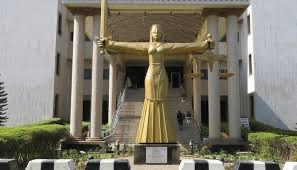- By Halimah Olamide
The Ministry of Justice has commenced a process that will see to the reduction of cases that must get to the Supreme Court in the country.
The government noted that there are cases that could terminate at the Appeal Court level without necessarily adding more burden on the already overwhelmed apex court of the country.
The Attorney-General of the Federation and Minister of Justice, Lateef Fagbemi SAN, who disclosed this to journalists in Abuja today, there are draft legislations to address this and many challenges confronting the judiciary. “In this regard, we intend to look at a situation where many cases will terminate at the court of appeal to reduce the burden on our noble justices of the Supreme Court.”
He said, “The National Summit on Justice presents a unique opportunity to collectively tackle the pressing issues hindering the efficient, fair, and people-centered delivery of justice in our nation.
“Furthermore, the summit will deliberate on draft legislations proposed to address specific identified challenges within the justice sector, relating to the judicial appointments process, administration, funding and budgeting for the judiciary, the elimination of delays and inefficiencies in justice delivery and to evolve ways to reduce the amount of time for adjudication of cases, eliminate some of the associated technicalities, and reduce the number of cases getting to the Supreme Court.
Fagbemi said the proposed law would help in achieving a people-centered justice system.
Fagbemi added, “These proposed laws are expected to serve as a catalyst for collective action and provide a guiding framework for relevant governmental institutions at both the national and sub-national levels to establish an effective, efficient, and people-centered justice system.”
Fagbemi noted that at the summit, the National Policy on Justice from 2024 to 2028 would be reviewed and adopted.
He said, “One of the summit’s goals is to review, validate, and adopt the revised National Policy on Justice 2024- 2028 to drive prison reforms, access to justice for the average Nigerian, as well as the review of electoral laws and procedures in handling election-related cases, among several other reforms.


